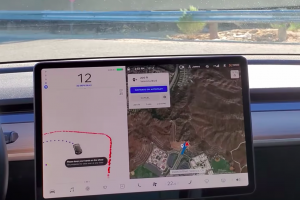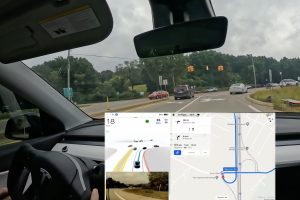- 🚗 Tesla plans to upgrade HW3 cars to Hardware 4 for customers who purchased FSD.
- ⚙️ HW4 has significantly more capability than HW3, making it easier to support advanced systems like Unsupervised FSD.
- 🛡️ Elon Musk acknowledged there’s a chance HW3 might not reach the safety level needed for Unsupervised FSD.
- 🔄 Tesla promises a free upgrade to HW4 for HW3 customers if necessary.
- 🙌 The Tesla community received Musk’s promise positively, although concerns about service network strain remain.
In a move that further cements Tesla’s reputation as a leader in automotive innovation, the company has announced plans to upgrade its Hardware 3 (HW3) equipped vehicles to Hardware 4 (HW4) for customers who have purchased Full Self-Driving (FSD) capabilities. This promise not only underscores Tesla’s commitment to safety and customer satisfaction but also highlights the rapid advancements in autonomous driving technology.
Understanding the Upgrade: From HW3 to HW4
Why the Need for an Upgrade?
Tesla’s Full Self-Driving capability represents a significant leap in vehicle autonomy, intending to eventually allow for a truly driverless experience. However, Elon Musk, Tesla’s CEO, has acknowledged that HW3 might not achieve the necessary safety standards for Unsupervised FSD. This potential gap is what drives Tesla’s decision to offer HW4 upgrades.
HW4 is equipped with several times the capability of HW3, making it inherently more compatible with advanced systems that power Unsupervised FSD. The move to HW4 promises enhanced processing power, improved neural network capabilities, and greater sensor coverage, all of which are pivotal for navigating complex driving environments without human intervention.
Key Differences Between HW3 and HW4
- Processing Power: HW4 boasts significantly higher processing power compared to HW3, facilitating quicker and more efficient data processing required for autonomous decision-making.
- Sensor Suite: HW4 includes a superior array of sensors and cameras. This enhancement ensures that the system captures a more comprehensive view of the environment, improving the accuracy of its perception system.
- Safety Enhancements: With these upgrades, the HW4 is better suited to achieve critical safety benchmarks, which are vital for Unsupervised FSD.
The Impact of the Upgrade on Tesla Customers
For Tesla owners, the transition from HW3 to HW4 offers several benefits and considerations:
- Enhanced Safety: As the key driver behind the upgrade, safety improvements mean increased peace of mind for Tesla owners.
- Future-Proofing Vehicles: By upgrading to HW4, Tesla is ensuring that its vehicles can support future software updates and advancements in FSD technology.
- Potential Service Network Strain: While the upgrade is met with enthusiasm by the Tesla community, there are concerns regarding the potential strain on Tesla’s service network. Providing these hardware upgrades on a large scale might challenge existing infrastructure, potentially affecting turnaround times for customers.
Conclusion: A Commitment to Doing the Right Thing
Tesla’s decision to upgrade HW3 vehicles to HW4 for FSD customers at no additional cost is indicative of its broader philosophy—prioritizing customer satisfaction and safety above all else. As Musk succinctly put it, “Do the right thing for customers, and they will do the right thing for you.” This ethos not only builds trust but also sets a precedent for how technology companies should handle advancements and upgrades.
By taking such decisive steps, Tesla not only reinforces its technological leadership but also aligns itself closely with its customer base, creating a more loyal and invested community. This proactive approach underpins Tesla’s broader strategy of continuous innovation and responsiveness to user needs.





